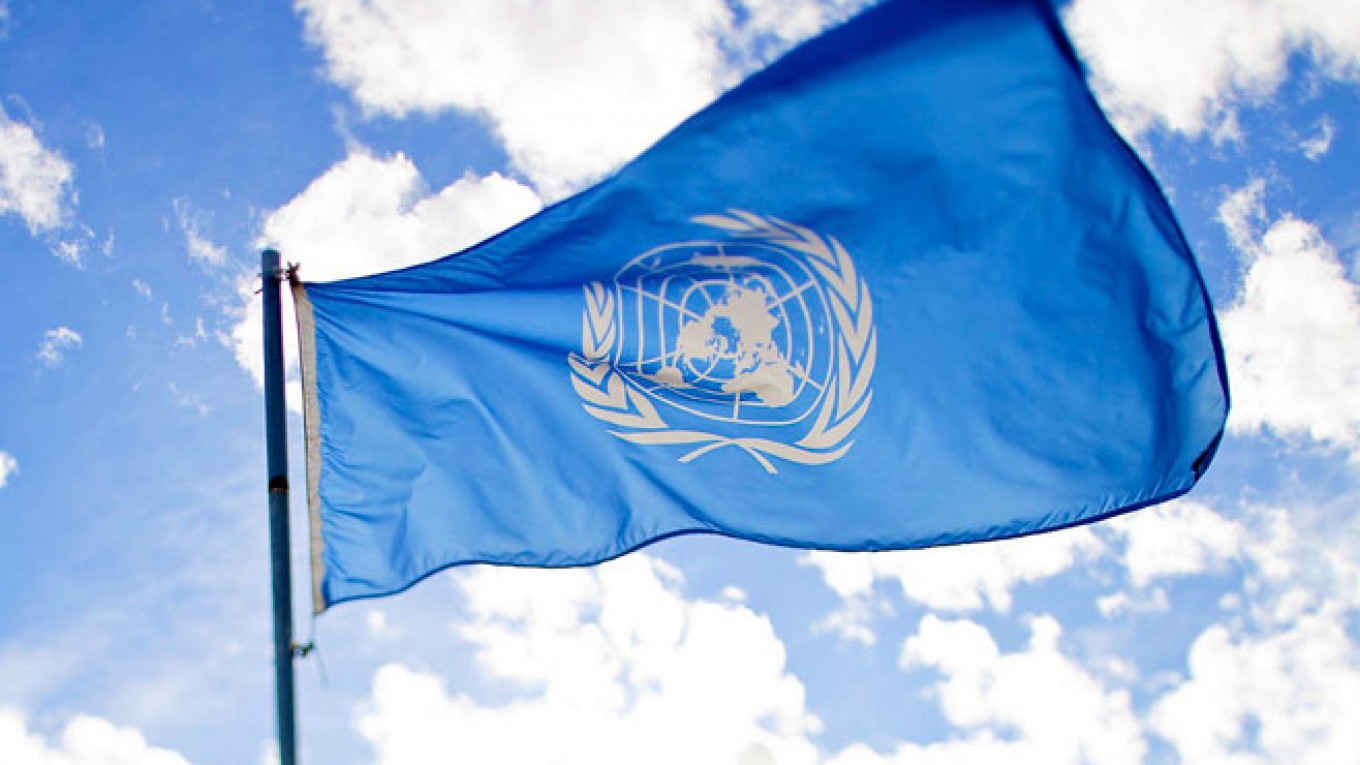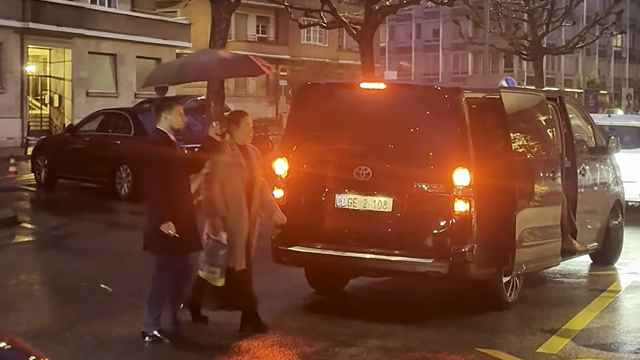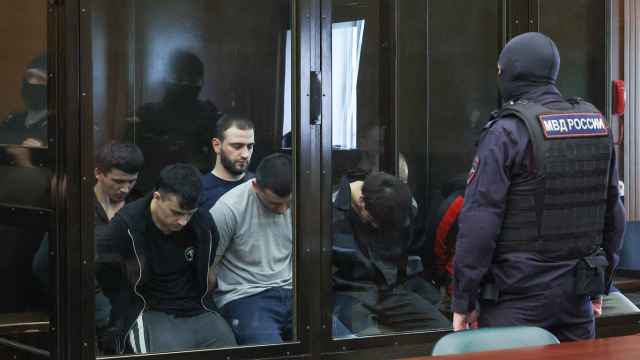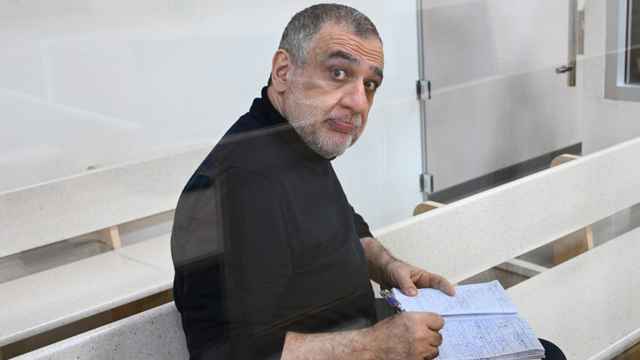Seventy years ago, on Oct. 24, 1945, the United Nations charter came into force, ratified by the five permanent members of the Security Council — the U.S., U.K., France, China and the Soviet Union — and the majority of other states that had signed it previously.
As the UN prepares to celebrate its 70th anniversary on Saturday, The Moscow Times looks back at the most compelling moments Russian and Soviet leaders have contributed to the history of the world's largest international organization.
Stalin: UN Pioneer
The Soviet Union was present when the UN was only a project on paper. Together with U.S. President Franklin Roosevelt and U.K. Prime Minister Winston Churchill, Soviet dictator Josef Stalin supported the idea of international collaboration in maintaining peace and security from the early 1940s.
In October 1943, government officials from the Soviet Union, the U.K., U.S. and China met in Moscow and signed a declaration on setting up an international organization to help preserve peace in the world. It was reaffirmed several months later at a meeting between Stalin, Churchill and Roosevelt in Tehran on Dec. 1, 1943.
The three leaders met again in February 1945 in the Crimean city of Yalta. “We are resolved … upon the earliest possible establishment with our Allies of a general international organization to maintain peace and security,” the three leaders are cited by the UN as saying.
Together with France, the four countries that had backed the idea from the very beginning made up the “big five” Security Council permanent members, and were given the right to veto any decision the council makes.
Khrushchev: The Shoe
The most notorious incident involving a Soviet or Russian leader at the UN is undoubtedly that of Nikita Khrushchev, Stalin's successor, and his shoe.
The episode took place during the General Assembly of 1960, but accounts of the incident vary. No video footage of it exists, and although popular legend has it that the eccentric Soviet leader banged his shoe on the actual speaker's podium for emphasis while giving an emotional speech, a photo of him doing so was doctored, and it was in fact almost certainly his own desk that he hit with the shoe — not the podium.
His son Sergei Khrushchev told the Rossiiskaya Gazeta government newspaper in 2009 the family's version of what actually happened in New York in 1960.
According to Khrushchev junior, when his father walked into the hall where the assembly was being held, reporters quickly gathered around him.
“One of the reporters stepped on his foot, and his shoe — his sandal, to be exact — fell off. Khrushchev didn't put it back on, because it was awkward for a heavy person [like him] to bend down in front of the cameras. So he went to his desk, and his aids brought the shoe over to him, put it on the desk and covered it with a napkin,” he was cited by Rossiiskaya Gazeta as saying.
When the representative of the Philippines took the stage and accused the Soviet Union of colonizing Eastern European countries, everyone started shouting, and Khrushchev, in an effort to show his desire to take the podium and speak, took the shoe from the desk, waved it, and then banged it on the desk, his son said.
“He banged it on the desk and was finally noticed. The Soviet leader then went up to the podium — wearing one sandal — and called the Filipino a 'lackey of American imperialism,'” Khrushchev junior said.
Gorbachev: Mass Disarming
The last leader of the Soviet Union, Mikhail Gorbachev, took the podium at the UN General Assembly in 1988.
He announced mass cuts in the Soviet army — by 500,000 troops and tens of thousands of tanks, heavy weapons and military air planes — within the next two years, which was considered by many a significant step toward ending the Cold War between the Soviet Union and the West.
“It would be naive to think that the problems that humanity faces now can be solved with the means and methods that were eligible before,” Gorbachev reportedly said.
“It is obvious that force and the threat of force cannot and must not be instrumental in foreign policy,” the Soviet leader said.
Putin: Great Expectations
Last month, President Vladimir Putin gave his third speech at the UN General Assembly. It was highly anticipated in Russia, being Putin's first visit to the U.S. in almost 10 years and taking place amid high tensions between Russia and Western countries and outcry by Kremlin critics over the country's international isolation.
On Sept. 27, the day Putin gave the speech, state-run media outlets were falling over each other to emphasize the importance of the event.
Pro-Kremlin tabloid LifeNews ran a set of cartoons of Putin's forthcoming speech and meeting with U.S. President Barack Obama. One cartoon showed Putin and Obama dressed as boxers, with Putin delivering a knockout blow.
But Putin's speech failed to surprise. Much of what he said during the assembly had already been covered in earlier interviews.
He focused on the importance of fighting terrorists in Syria, said NATO was responsible for the conflict in eastern Ukraine and criticized Western sanctions against Russia.
"Our direct approach is used as an excuse for accusations against us of growing ambitions. But the essence is not our ambitions. It's impossible to stand by in the current situation," Putin told the assembly.
Contact the author at [email protected]
A Message from The Moscow Times:
Dear readers,
We are facing unprecedented challenges. Russia's Prosecutor General's Office has designated The Moscow Times as an "undesirable" organization, criminalizing our work and putting our staff at risk of prosecution. This follows our earlier unjust labeling as a "foreign agent."
These actions are direct attempts to silence independent journalism in Russia. The authorities claim our work "discredits the decisions of the Russian leadership." We see things differently: we strive to provide accurate, unbiased reporting on Russia.
We, the journalists of The Moscow Times, refuse to be silenced. But to continue our work, we need your help.
Your support, no matter how small, makes a world of difference. If you can, please support us monthly starting from just $2. It's quick to set up, and every contribution makes a significant impact.
By supporting The Moscow Times, you're defending open, independent journalism in the face of repression. Thank you for standing with us.
Remind me later.






